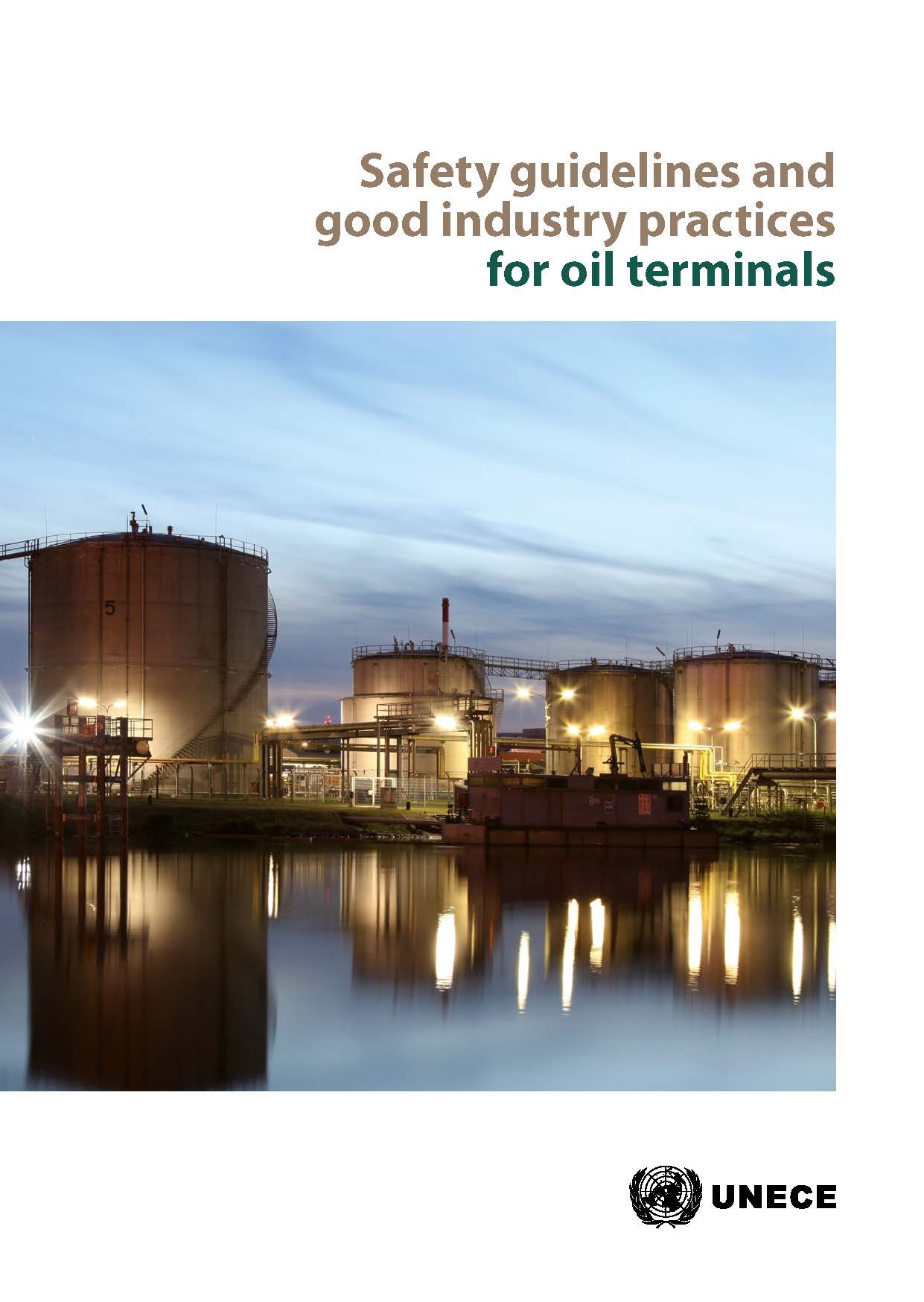 This postcard provides a brief summary of the UNECE Safety Guidelines and Good Practices for Oil Terminals which have been developed by the Joint Expert Group on Water and Industrial Accidents in cooperation with experts on oil terminals safety and UNECE.
This postcard provides a brief summary of the UNECE Safety Guidelines and Good Practices for Oil Terminals which have been developed by the Joint Expert Group on Water and Industrial Accidents in cooperation with experts on oil terminals safety and UNECE. The Guidelines provide a set of principles, recommendations and technical recommendations (including for design, planning, procurement, construction, management and decommissioning) that authorities, operators of facilities and other related experts can use to prevent accidents at oil terminal facilities and to limit their consequences on human health and the environment.
The postcard is available in English, French and Russian. Read the full publication here.
The series of UNECE Safety Guidelines and Good Practices produced by the Joint Expert Group on a range of topics (firefighting water retention and management, tailing management facilities, pipelines), as well as other guidance documents (such as a Checklist for contingency planning for accidents affecting transboundary waters), are used by countries and organizations to improve their policy-making, safety standards and transboundary cooperation to better prevent and respond to accidental transboundary water pollution.
For more information on the Joint Expert Group on Water and Industrial Accidents and its activities, please refer to its webpage and brochure.


